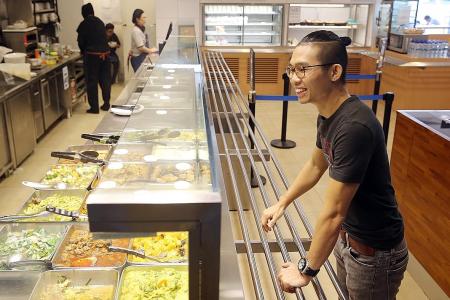Insufficient insulin linked to Type 2 diabetes
Mr Alan Phua, 34, exercises three to five times a week and is religious about his diet.
Looking at his lean frame, nobody would have guessed that the co-founder of a food technology start-up was at a high risk of developing diabetes, but he has been able to avoid it so far.
Like many others in Singapore, his body does not produce enough insulin, which could cause sugar to build up in the bloodstream. This would lead to a host of accompanying health issues, ranging from fatigue to wounds which do not heal, and infections.
A proper diet and exercise can keep the blood glucose level from rising to the point where it becomes diabetes.
Local researchers from the National University Hospital, in collaboration with Janssen Pharmaceuticals, have found that the inability to produce enough insulin could be why Asians are more prone to Type 2 diabetes than their Western counterparts.
The breakthrough finding, based on a study of 140 mostly Chinese participants, will pave the way for better diabetes management for people here and in the region. This includes tailoring dietary advice and better selection of drugs to treat diabetes, doctors believe.
But they noted that more participants, and races, will be needed for the results to be applied to the general population.
One in three Singaporeans have a lifetime risk of developing the disease. Currently, about 400,000 Singaporeans are diabetic.
According to a previous study, 8 per cent of people of Chinese descent with a body mass index of 23 - just outside the healthy weight range - have diabetes. This is four times more than their European counterparts.
Those interested in taking part in the ongoing five-year study can contact the research team at brite_spot@nuhs.edu.sg or call 8781-6302 or 8781-6303 or 8781-6306. Requirements include participants having to be between 30 to 70 years old and having no known history of diabetes or other chronic diseases requiring long-term medication.
Get The New Paper on your phone with the free TNP app. Download from the Apple App Store or Google Play Store now


